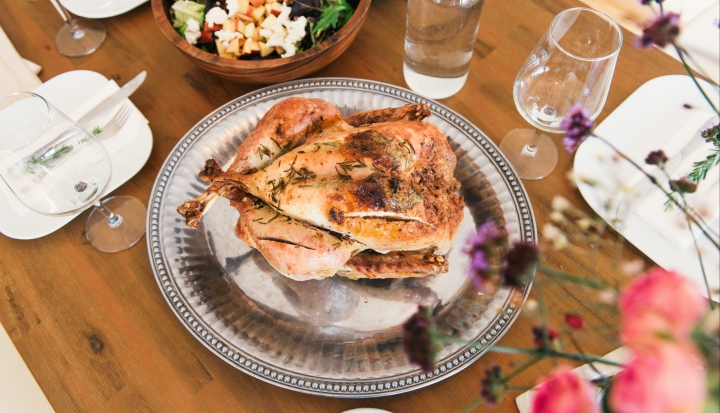Earlier this week I impulsively phoned Polly, a kind-hearted, no-nonsense woman old enough to be mother. Except at church, I hadn’t talked with her since saying good night at her front door one evening last winter. Her husband had been in intensive care. Hearing his time was short, I had responded as my parents would have: Dad’s neighborly concern coupled with Mom’s culinary efforts. Without calling ahead, I’d driven to Polly’s and dropped off three quarts of vegetable-beef soup. “A few lunches for you. Just heat it up. No need to return the containers”—a burn-blemished plastic casserole and a wide-mouth Ball jar, once filled with Mom’s canned goods.
Polly had invited me in out of the rain. I stayed five minutes, never taking my coat off. Later that night her husband died.
Since then I’d thought of Polly—not often enough, what with holiday travels and work worries and fears of a new world war.
But then this week, my Tuesday evening cooking spree prompted my Wednesday morning call. “Oh, hello, Evelyn,” Polly answered.
Hearing a hint of depression, I got right to the point. “I have this idea. Tell me if it;’s good or bad.”
Her dry humor prevailed. “Well, OI’d hope to have an intermediary choice, but let’s hear it.”
“Last night I roasted a chicken with stuffing. And I’d like to bring it over this evening and eat with you.”
She didn’t hesitate. “Well, that sure would make me focus on what I need to do today. Clean up the house for you. It’s a great idea. It’ll give me something to anticipate.”
I suggested that she boil a few potatoes; I’d provide the side dishes: coleslaw and a fruit cup.
At 6:30 Polly invited me in out of the rain. Seeing her kitchen still undone, I didn’t ask about her day. I focused on one impressive accomplishment, the dining room table cleared and covered with a white lacy cloth.
She’d already cooked and drained the potatoes. As we microwaved chicken sliced from the carcass and set the table with folded cloth napkins and glass dinner plates, Polly talked. I listened. Her themes mirrored concerns of my dad after my mother’s death. Polly resists people—her children, neighbors, lawyer—telling her how to run her life; she may be a tad addled but she hasn’t completely lost her faculties. She gets frustrated that nobody answers the phone anymore; call the Department of Motor Vehicles and you hear a tape that sends you to a website. She reminds me that the pastor isn’t perfect. She says she has no appetite, no interest in cooking she hardly eats anything other than soup.
Once our warm food and cold salads were on the table, I asked to say grace. As we ate, neither of us commented on the stuffing, a specialty of mine. I didn’t offer Polly any advice. I didn’t try to fix any of her problems. Toward the end of the meal, she asked me about my life, and I gave her highlights of my writings, wonders, worries.
After dinner we moved to the kitchen. Looking for tea at the back of a cluttered counter, she spotted an empty quart jar, which she handed to me. “Here, this is yours.”
She continued, “I didn’t throw it out. It’s a nice Ball. Even has cup-measurement marks on the side.”
“I don’t need it back.”
“Take it,” she insisted. “If you don’t want it, fill it with soup for somebody else.”
I smiled and accepted her offer.
Later, as I packed up my bag to go, I sliced her some extra chicken. “Enough to make a few sandwiches for yourself.”
In turn she pushed on me the remaining serving of boiled potatoes.
“What? No,” I exclaimed. “You got chicken. You’ve got potatoes. That means soup.”
She smiled and withdrew her offer.
At eight o’clock, Polly walked with me out onto the stoop. After giving and receiving a brief hug, I mentally hunted for a parting phrase more comprehensive than good night. “Bless you,” I said. Though I didn’t speak the name, I intended to mean that God should or would accomplish a good work in and for her.
Polly paused, letting the message sink in. Like me, she said something more significant than goodbye. Her farewell sentence surprised me; I didn’t expect to be its subject: “You are a blessing,” she said, sending me off into the night, clutching an empty quart jar I was to fill and give away again.
This article was originally published in the October 2003 issue of U.S. Catholic.
















Add comment